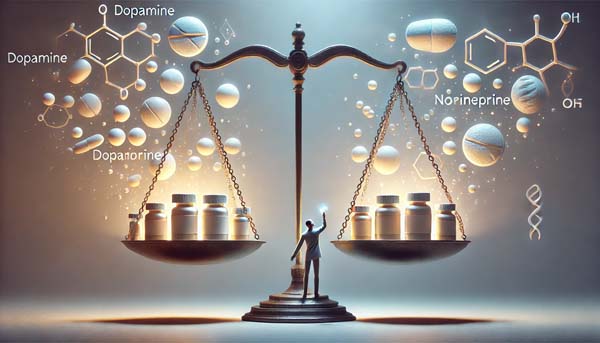
🔄 Step Up / Step Down
ADHD care that flexes with life — more when you need it, less when you don’t. In ADHD care, needs can change over time. Sometimes, life gets harder or symptoms resurface. At other times, things stabilise and support can gently taper. At ADHD Life Guide, we’re here to respond to both — stepping up care when needed, and stepping it down when you're thriving.

⬆️ When We Step Up Care
Extra support for when things feel harder than usual.
There are times when your needs increase — due to changes in mental health, life stress, or medication response. In these moments, we aim to increase support through more frequent appointments, close monitoring, and problem-solving.

🧠 Worsening Mental State
Depression, anxiety, or overwhelm? We’ll meet you where you're at.
Many people with ADHD also experience depression, anxiety, or emotional dysregulation. If these symptoms start to escalate, we may recommend more frequent psychiatric reviews or coaching check-ins to help stabilise things.

💊 Medication Not Working
If focus fades or symptoms return, we rework the plan together.
If your medication seems less effective, or if you begin to notice symptom resurgence, we may step up to review your treatment plan. This might involve adjusting the dose, switching medications, or trialling a drug holiday under supervision.

💬 Increased Coaching Needs
When life throws a curveball, coaching can help you recalibrate.
Some clients benefit from stepping up ADHD Life Guide coaching when experiencing difficulty with emotional regulation, procrastination, or significant life changes. These sessions can act as a stabilising bridge while medication is being reviewed.
⚠️ Emerging Side Effects
We keep a close eye on how your body and brain respond.
Sometimes new side effects arise — sleep disturbance, emotional swings, appetite changes, or cardiovascular symptoms. Closer monitoring may be needed to assess whether these are temporary or require medication dose adjustment or switching to alternatives.
🔄 Medication Optimisation
Fine-tuning dosage to balance benefits and side effects.
Even when side effects are minimal, we may step up care if you're not getting the full benefit of your treatment. This phase involves more frequent titration and tracking to find the sweet spot where symptom control and side effects are in balance.
🚨 If You’re in Crisis
We’re not a crisis service — if it’s urgent, please seek emergency care.
We do not offer emergency psychiatric care. If you are in immediate distress:
- Visit your local emergency department
- Contact your General Practitioner
- Use the Safe Life Guide app to complete a safety plan
- Urgent care requests like medication about to run out, i.e. those that can be meaningfully addressed through telehealth are accommodated
Our clinic operates part-time, and while we do our best to increase support when needed, we are not a crisis response service.

⬇️ When We Step Down Care
When the going is good, we ease into a lighter rhythm.
As progress continues and things settle, it’s often appropriate to reduce the frequency of reviews and coaching. Stepping down doesn’t mean we’re stepping away — it simply reflects that you’re managing well, and your care can shift to a maintenance phase.
✅ What Stability Looks Like
Symptoms settled. Life on track. Support, scaled to your needs.
You may be ready to step down when:
- ADHD symptoms are well managed
- No significant side effects are present
- Mental health is stable, with no emerging distress
- Life circumstances are manageable
- Medication is effective and consistent
- You're feeling confident in your strategies and supports
In this phase, follow-ups are spaced out to quarterly, half-yearly, or even every 6 months. Once in maintenance, telehealth becomes an option to save you the trouble of travelling to the clinic.


🌱 Ongoing Support in Maintenance Phase
Minimal touchpoints. Maximum impact.
Even when things are going well, many clients:
- See their psychiatrist twice or thrice a year
- Option of Telehealth made available to you
- Complete the annual ADHD inventory
- Schedule booster ADHD Life Guide coaching sessions to stay aligned with their values and routines
These check-ins help keep momentum going and allow early intervention if needed.
Any Questions
We understand that life isn’t linear. If things begin to unravel — emotionally, cognitively, or behaviourally — we are ready to step you back up. Most clients will move fluidly between support phases over the course of their ADHD journey.
Mon - Fri: 8AM - 6PM
Sat - Sun: Variable
Brisbane North Medical Specialists,
15 Dallas Parade, Keperra, QLD 4054
(07) 5221 3489
reception@bnms.com.au
